SECTION 9: FOREIGN FREEHOLD CONDOMINIUMS EXPLAINED: COMPLETE GUIDE
Making the Right Choices
Foreign freehold ownership in Phuket is rather limited to foreigners. As investing in any type of property is always a major decision, buyers naturally want the reassurance that their purchase is both secure and strategically sound.
In most countries, property ownership laws are relatively straightforward. However, in Phuket, and throughout Thailand, foreign buyers are prohibited from owning land, which includes landed property such as villas and houses. The exception is foreign freehold condo ownership in Phuket through registered condominiums. These can be purchased in a foreign buyer’s own name and recorded at the local Land Department, offering a clear and legal title.
With the correct information, buyers can make confident decisions and avoid the inaccurate claims or misleading advice that can sometimes come from less-scrupulous agents or developers. Unfortunately, many investors only discover they have made costly mistakes, or even breached Thai law, after the fact.
This guide is designed to explain the legal framework in detail, helping discerning investors navigate the Phuket property market with clarity. Over the next two sections, we will cover every lawful option for foreign ownership, including securing a villa via leasehold agreements or freehold title through a Thai Limited Company.
First, let’s begin with the most straightforward and secure route: foreign freehold condo ownership in Phuket.
Find your new Phuket Property with Thai Residential
Current Legal Framework for Foreign Freehold Property Ownership in Phuket: Condominium Laws
When it comes to foreign freehold property ownership in Phuket, condominiums offer the clearest and most secure path. Under Thai law, up to 49% of the total saleable area in any condominium development can be owned by foreigners, with the remaining 51% reserved for Thai nationals.
A condominium title grants ownership of your individual unit as well as a “fractional interest” in the building’s common areas, including the swimming pool, gym, landscaped gardens, car park, and reception. This title should state both the size of your private unit and the proportion of the shared facilities you own. That same percentage also determines your voting rights within the owners’ association.
The main advantage of foreign freehold ownership in Phuket through a condominium is that it can be held permanently in your own name, with no time limits, until you choose to sell. In addition, inheritance laws are generally more favourable than those for leasehold villas, allowing foreign owners to pass the property to their heirs, although the rules are not without some complexity.
There is some overlap, and occasional conflict, between different laws governing foreign freehold property ownership in Phuket. Under the Condominium Act, any foreigner who inherits a condominium must notify the local Land Office within 60 days. If the heir does not meet the eligibility criteria for foreign ownership, they may be required to sell the property within one year of the owner’s death.
Meanwhile, the Thai Civil and Commercial Code (CCC) states that the legal right to own the property passes to the heir along with the property itself. This has been the Land Department’s formal interpretation, that the deceased owner’s right to hold a freehold title transfers upon death, but there is still insufficient case law to guarantee permanent ownership for the heir in every scenario.
One of the key requirements under the Condominium Act is a Foreign Exchange Transaction Form (FETF) in the condo owner’s name. To make inheritance smoother, buyers can request that their overseas bank include multiple names on the telegraphic transfer when sending funds to Phuket. This allows the Thai receiving bank to list all names on the FETF, making succession far less complicated.
The names listed on the FETF must also be recorded as co-owners of the condominium. This helps secure the inheritance rights of all parties should the principal buyer pass away. Another succession planning option for foreign freehold property ownership in Phuket is to register the condo under an offshore company name, as the FETF will then be in the company’s name.
However, if the authorities apply a strict interpretation of the Condominium Act, instead of the more favourable CCC interpretation, the process can become more complex. In such cases, an heir wishing to keep the property may need to transfer into Thailand an amount equivalent to the purchase price of the unit. This means, counterintuitively, that someone could be required to “buy” the very condo they have just inherited.
The FETF process and the five requirements (or “Doors”) to foreign condominium ownership in Phuket are covered in more detail in the insights shared by Sam Fauma of ILO below.
If you are considering buying a condominium in Phuket, our step-by-step guide covers how to purchase correctly, legal safeguards, and what to expect along the way:
How to Secure a Condo in Phuket: The Complete Guide
 WHAT SAM SAYS ABOUT “THE FIVE DOORS”
WHAT SAM SAYS ABOUT “THE FIVE DOORS”
Section 19 of the Condominium Act has “Five Doors” relating to the ownership of a Phuket condominium by a foreigner. If any one of the following conditions are met, the foreigner may proceed to purchase a condo in their own name, provided not more than 49% of that development is already foreign owned.
Section 19: An alien person or a juristic person deemed alien by law may have an ownership in a unit if it satisfies the following conditions:
1: The person obtains a residence permit in accordance with immigration law;
2: The person obtains a permit to enter the country in accordance with the law on investment promotion;
3: The person is a juristic person under section 97 and section 98 of the Land Code, registered as a juristic person under Thai law.
4: The person is an alien juristic person under the Announcement of the Revolutionary Council No. 281, dated the 24th November B.E. 2515 (1972), and obtains an investment promotion certificate in accordance with the law on investment promotion.
5: The person is an alien person or a juristic person deemed alien by law, bringing foreign currency into the country, withdrawing funds from a Thai Baht account of a person having a place of residence outside of the country, or withdrawing funds from a foreign currency-based deposit account.
Number 5 is obviously the FETF, which is the most common “door” foreigners use to buy a condo, but satisfying any one of the five is enough to qualify for freehold foreign ownership of a condominium in Phuket.
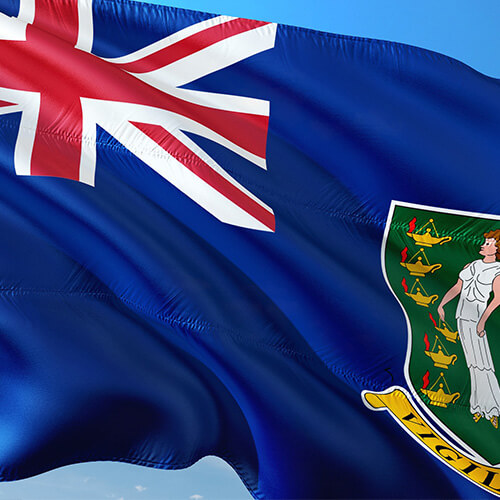
Using a British Virgin Islands (BVI) Company to Own a Property in Phuket
For some buyers exploring foreign freehold condo ownership in Phuket, succession planning is a key consideration. One effective approach is to purchase a condominium, or in some cases a villa, through an offshore company.
While companies can be registered in jurisdictions such as the Seychelles, Mauritius, or the Turks and Caicos Islands, the British Virgin Islands (BVI) remains the most popular choice for property holding. BVI companies are well established, globally recognised, and offer competitive annual running costs, making them a preferred option for long-term ownership and inheritance planning.
It is important to draw a clear distinction between using an offshore company to own a condominium in Phuket and using a Thai company to bypass landed property ownership restrictions. (The latter practice is covered in detail under “Phuket Villas, Houses and Landed Property”). In this case, we are referring to the fully legal purchase of a freehold condominium, not by a foreign individual, but by a properly registered foreign company. Offshore company ownership solves the inheritance challenge because companies, unlike people, do not die.
Through a BVI company, the buyer controls the condo’s ownership by controlling the company’s shareholding. If they later wish to sell, they can simply sell the BVI company itself. Transferring company shares automatically transfers ownership of the condo, although this may not be cost-effective for lower-priced units.
Setting up a BVI company typically costs a few thousand dollars, with annual running costs just over $1,000 per year. For a $100,000 studio condo, the extra expense may not be justified, but for an $800,000 sea-view Phuket penthouse, it can be an obvious choice, especially for those committed to secure foreign freehold property ownership in Phuket for the long term.
There is also the question of what corporate ownership entails under Thai law. If an offshore company owns the property, there are potential tax consequences. Even though audited accounts are not a statutory requirement in the BVI, the company must still file a balance sheet in Thailand detailing any rental income and related financial activities. Furthermore, if the foreign occupant is a director of the offshore company, their “free rent” is deemed to be a benefit in kind from the company. The individual must then pay income tax on the fair market value of the annual rent received as a benefit.
Finally, if the condo is sold, the BVI company must pay corporate tax in Thailand on any capital gain. If the purpose of the company is purely ease of inheritance, this last tax liability can often be avoided by simply transferring ownership of the company instead of the condo itself.
When the property is ultimately sold, however many years in the future that may be, the freehold title will be transferred away from the BVI company. At that point, the ultimate seller (the final owner of the company) will have to pay income tax based on the total capital gains earned on the property since its original purchase, which can be significant for long-term property ownership in Phuket.
Condotels and Hotel-Licensed Condominiums in Phuket
A Condotel is a hybrid species of Phuket real estate combining the services of a hotel and a condominium. It is a common concept in other parts of the world, which permits individual units to be privately purchased, and then rented as hotel accommodation. In short, this type of foreign freehold condo ownership in Phuket, is for anyone purely interested in investment, so not for someone seeking a second home or a personal holiday retreat.
For investors interested in foreign freehold property ownership in Phuket, Condotels present an attractive legal option. The owner of a Condotel unit may rent it out on a monthly, weekly, or even daily basis. (For anyone who has followed the restrictions being placed on Airbnb by cities and countries around the world, this is a huge advantage for any property investor.)
A hotel management company is typically employed to run the resort, and these companies all have attractive rental programs. The owner is usually allocated a fixed number of days per year to use their unit, but for the remainder of the time the management company treats the unit as a normal hotel room. Under most arrangements, they also take care of maintenance and repairs to the unit.
Most Phuket Condos set up with hotel licenses offer either a guaranteed return or the option to enter into a “rental pool,” which requires the owner to make their unit available for rental (together with the other participating owners). The owners then “pool” the rental income, and share together in the profits.
The attraction of a Condotel investment, as a means for foreign freehold ownership in Phuket for a foreigner is obvious. Firstly, they are permitted to own a Phuket freehold condominium unit in perpetuity. Secondly, they are legally allowed to have the rental of their unit managed for them by a professional hotel management company. They can therefore take advantage of Thailand’s flourishing real estate sector, while simultaneously capitalising on Phuket’s booming tourism industry. At the same time, they can also enjoy “free” accommodation in Phuket for a few weeks every year.
To function effectively as a condo, as well as a hotel, a Condotel development should apply for commercial use on day one. It is theoretically possible for the juristic person at a condominium to allow (or at least condone) short-term rentals, effectively “commercialising” the condo for use as a Condotel. If the juristic person chooses to allow this, the agreement of the owners is not required. But to apply for the hotel license, thus officially making the development into a Condotel, not only must the juristic person agree, but this legal commercialisation of the common area also requires the assent of 100% of the owners.
It is unfortunate that many Phuket condominium projects were rushed into development without first contemplating their use as a hotel. Shorter-term rentals (e.g. daily and weekly) are technically illegal in Thailand without a hotel license, yet many condominium developments offer guaranteed returns based largely on the short-term rental market.
It is also possible that many of the people profiting from short-term rentals are not paying tax on their income. Anyone who gets to know Thailand soon understands that nothing is a problem until lawmakers decide to take action. In other words, everything is OK… until it isn’t.
If Phuket should experience a slowdown in tourism, hoteliers may campaign in strength for an end to illegal short-term rentals. Any development already run with a hotel license would of course be immune from the potential backlash. So, if hoteliers were successful in any such campaign against short-term rentals, Condotels, especially those offering foreign freehold property ownership in Phuket, would profit right along with them.
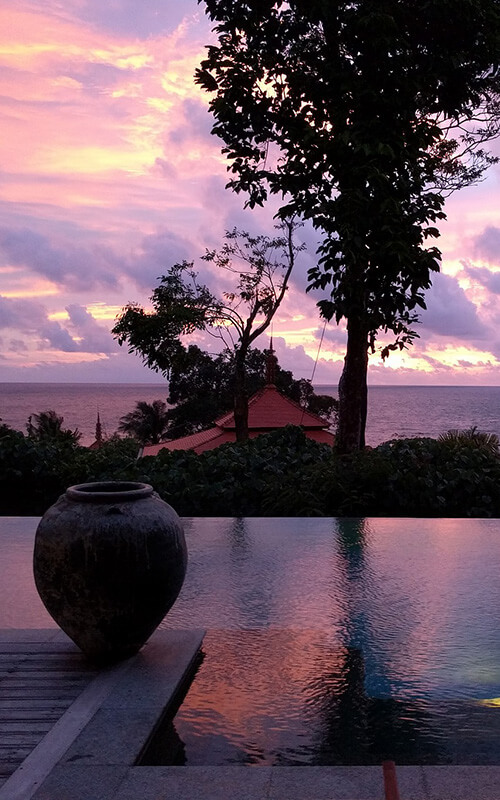
You can read more about the situation with short term rentals in our article on the subject here:
An Overview on the Current Situation of Short-Term Rentals in Phuket 2025
Branded Residences and Foreign Freehold Property Ownership in Phuket
Phuket’s luxury real estate market also offers a unique hybrid of hotel living and an investment that can be owned freehold by foreigners. While some branded residences in Phuket are private villas, many are legally structured as condominiums, allowing foreign freehold property ownership in Phuket under the Condominium Act.
The appeal for high-net-worth investors is clear: ownership in a residence managed to the exceptional standards of a world-class 5-star hotel brand, often with access to a rental pool program if the owner is not living on site. Buyers enjoy the prestige, service, and design synonymous with luxury hospitality, combined with the convenience of fully managed property maintenance.
Globally, the popularity of branded residences has surged over the last two decades. While the USA holds roughly one-third of the world’s total, there are now more than 50,000 branded residence units across 400 developments worldwide.
The concept dates back to 1927 when the Sherry-Netherland Hotel opened on Fifth Avenue in New York. Although other examples followed, the sector truly regained momentum in the 1980s, when Four Seasons launched condominiums alongside its Boston hotel. Phuket joined this elite market soon after with the Amanpuri, which transformed the concept with its tropical resort setting.
In the last 30 years, over 70 hotel groups have entered the branded residence market. Notably, the boom periods for these developments, the 1920s, the 1980s, and today, have all coincided with global surges in wealth creation.
According to UBS’s Global Wealth Report 2025, there are now over 60 million millionaires worldwide, and Forbes estimates nearly 2,800 billionaires. In the last decade alone, these numbers have more than doubled.
This rising wealth is excellent news for Phuket’s branded residences. Priced above traditional condominiums, they deliver unmatched value through world-renowned architecture, exquisite interior finishes, exceptional resort amenities, and breathtaking views. The hotel brand association not only helps them command premium sales prices but also ensures strong rental demand at top market rates.
In Thailand, branded residences have proven especially popular with wealthy domestic buyers. In Phuket, where up to 49% of a condominium development can be sold freehold to foreigners, the remaining 51% is often eagerly taken up by Thai investors. This demand suggests the luxury condominium sector will continue expanding Phuket’s collection of branded residence investment opportunities that align perfectly with the benefits of foreign freehold ownership in Phuket.
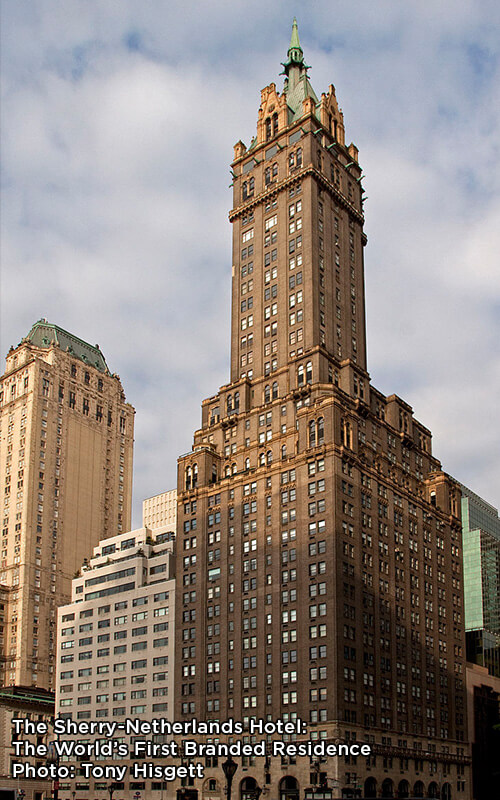
The first branded residence in Thailand was the iconic Amanpuri in Phuket, which redefined the concept by combining luxury hotel services with private ownership in a tropical resort setting. Its success set the stage for Phuket to become one of Asia’s leading destinations for this type of investment.
Over the past three decades, the sector has expanded rapidly, with more than 70 global hotel brands now offering branded residences worldwide. The timing of each growth surge, from the 1920s origins, to the 1980s revival, to today’s unprecedented expansion, has coincided with significant global wealth creation.
According to UBS’s Global Wealth Report 2024, there are now 58 million millionaires and almost 2,800 billionaires worldwide. Both figures have more than doubled in the last decade, signalling a deepening pool of buyers with the resources and appetite for high-end branded property.
This demographic shift is excellent news for Phuket’s branded residences. While priced above conventional condominiums, they offer exceptional value for money through world-class architecture, bespoke interior design, and meticulous attention to detail. In Phuket, these residences are often set within lush resort grounds, featuring outstanding amenities and spectacular sea views.
The prestige of a luxury hotel brand not only drives higher resale values but also ensures consistent rental demand at premium rates. This dual appeal, as both a lifestyle investment and an income-generating asset, makes them an attractive option for foreign freehold property ownership in Phuket as well as for wealthy Thai investors.
In a Phuket condominium project, up to 49% of the units can be sold foreign freehold, with the remaining 51% typically absorbed by domestic buyers. With strong demand from both Thai and foreign investors, the luxury condominium market in Phuket is set to deliver more branded residence projects, blending five-star living with secure foreign freehold ownership in Phuket.
Buying and Leasing Property in Phuket Articles
Is Phuket a Good Place to Retire?
Considering retirement in Thailand? Find out why Phuket is one of the top retirement destinations in Asia. Learn about the cost of living, healthcare, property options, and the relaxed island lifestyle that retirees love.
Phuket vs. Bangkok: A Comprehensive Analysis for Real Estate Investment
This article focuses on the pros and cons of the Phuket and Bangkok real estate markets. Yields for investors tend to be higher in Phuket, with less supply and a cash only market, catering for Phuket's booming tourist industry. Bankok tends to offer investors lower yields and a more volatile market as many Thai owners tend to use borrowing facilities to finance their purchase which means the market is more attuned to interest rate movements.
Top Gated Communities in Phuket for Expats
Gated communities attract buyers looking for excellent security and professional management teams and perhaps on-site facilities. As Phuket continues to prosper gated communities are becoming increasingly popular.
Hidden Costs of Property Ownership in Phuket
Owning property in Phuket involves more than the purchase price. This guide explains the hidden costs expats should plan for, including legal fees, maintenance, utilities, and community charges, so there are no surprises down the line.
Living Near Golf Courses in Phuket – Lifestyle Guide 2025
Phuket is home to championship golf courses surrounded by thriving communities. This guide highlights the lifestyle benefits of living near Laguna, Kathu, Blue Canyon, Mission Hills, and Aquella. Here’s what you need to know in 2025.
Cost of Living in Phuket: What You’ll Really Spend
A practical breakdown of Phuket living costs, with sample monthly budgets for singles, couples and families.
Investing in a Freehold Condo in beautiful Tropical Island of Phuket in 2025: What Buyers Need to Know
Foreigners can own a freehold condo in Phuket by following the right legal steps. Learn how to invest wisely in 2025/26 with our expert guide.
The Phuket Property Guide – Table of Contents
Discover Phuket Like Never Before with the Thai Residential Property Guide 2025/26 Unlock the latest insights into Phuket’s evolving property market with our expertly curated 2025/26 edition. This comprehensive guide is designed to help buyers, investors, and expatriates navigate the local real estate landscape with confidence. From legal ownership structures and market trends to area comparisons and lifestyle tips, the Thai Residential Property Guide is your essential companion for making smart, informed decisions in Phuket.
What Makes Phuket So Alluring for Travelers: And Why Foreigners Are Moving Here
Thinking of moving to Phuket? Explore lifestyle benefits, family appeal, and expat advantages that make the island a world-class place to call home.
Cryptocurrency in Phuket Property – What You Need to Know
An explainer on cryptocurrency in Phuket property - what’s possible, what isn’t, and the risks to be aware of under Thai law.
What Exactly Is an FET Form When Buying Property in Phuket?
A guide to the FETF in Phuket property - what it is, why it’s required, and what role it plays in property transfers under Thai law.
Phuket Property Transfer Documents – What You Need for Ownership Transfer
A full guide to required documents for transferring ownership of property in Phuket, includes foreign buyer documents, condo rules, and villa/land specifics.
A Huge Selection of Phuket Properties Awaits Buyers
Phuket offers one of the largest selections of real estate in Southeast Asia. From luxury villas to affordable condos, there’s a property to suit every lifestyle and budget.
SECTION 2: All About Phuket Island – Useful Information for Prospective Property Purchasers
Phuket Island is now one of the most popular tourist destinations in the world, with its tropical climate, word class infrastructure, stunning scenery and a multitude of attractions.
Short-Term Rental Rules Phuket: Condos & Villas (2025 Guide)
The legal landscape for short-term rentals in Phuket is complex. This 2025 guide explains what condo and villa owners must know about compliance, fines, and risks.
25 Reasons to Buy a Phuket Foreign Freehold Condominium
From legal security and rental yields to full ownership and minimal maintenance, here are 25 powerful benefits of purchasing a foreign freehold condominium in Phuket.
Tourism and Property: The Twin Engines of Phuket’s Growth
Explore how Phuket’s booming tourism industry fuels the island’s real estate market, from condos and villas to infrastructure growth and lifestyle demand.
20 Reasons Why Phuket Island Is an Excellent Place to Invest in Real Estate
From rising tourism to strong rental yields, here are 20 reasons Phuket continues to attract savvy real estate investors in 2025.
Phuket Property Market 2025 Forecast
Phuket’s property market in 2025 is shifting from rapid growth to steady stability. With price increases of 2-7%, strong condo demand, and continued foreign interest, discover the key trends shaping Thailand’s top lifestyle and investment destination.
Buying Phuket Property as a Foreigner – What You Need to Know in 2025
Learn how foreigners can safely buy property in Phuket, including condos, leasehold villas, company ownership, and the best legal structures in Thailand.
Buying Property in Phuket, Thailand – Houses, Villas and Condominiums in the Kathu Valley Area
The Kathu Valley has grown in popularity over the last few years. Its proximity to Patong and Phuket Town make it attractive to many residents, and even some tourists. It is probably the best location on the island for golf courses, as well as international schools and shopping malls.
Buying Property in Phuket, Thailand – Houses, Villas and Condominiums in Patong
Patong is Phuket's number one entertainment centre and most certainly has more energy than anywhere else on the island. Its fast pace attracts by far the largest amount of tourists and so investors in property here will always see a good return on their investment.
Buying Property in Phuket, Thailand – Houses, Villas and Condominiums in Phuket’s Northeast Coast, Including Cape Yamu and Ao Po
If you love to be away from people, then Phuket’s Northeast is probably as far away from the crowds you are ever going to find on the island. The pace of development is much slower here but we are seeing the ocasional new condo or villa project appear in the area.
A Comprehensive Guide to Buying and Leasing Property in Phuket
Thai Residential: Your Guide to Buying and Leasing Property in Phuket Navigate Phuket’s property market with confidence. Our comprehensive guide covers everything from ownership options to the best areas to invest, helping you make informed real estate decisions with ease.
SECTION 16: Why Consider Phuket Real Estate? A Look At All the Positives
There are many reasons why people fall in love with Phuket. Although the world is made up of a diverse range of people, everyone who visits Phuket begins their immediate love affair with this enchanting island. Today, the island comprises of a broad range of nationalities, possibly having nationals from pretty much every nation on Earth. Whatever their reasons for investing in, or even becoming residents of the island, nearly all of these people that come to Phuket have a positive attitude towards owning property here. This section covers all the positives associated with Phuket property sector right now, in 2024.
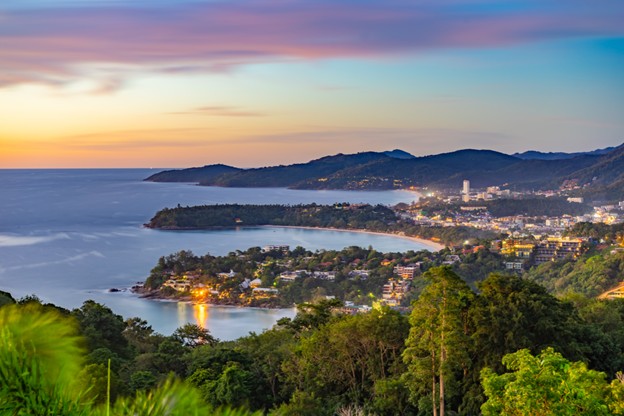
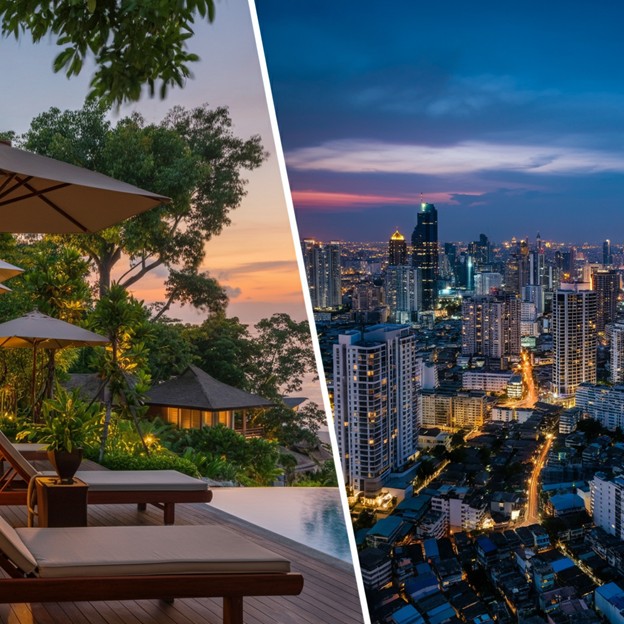
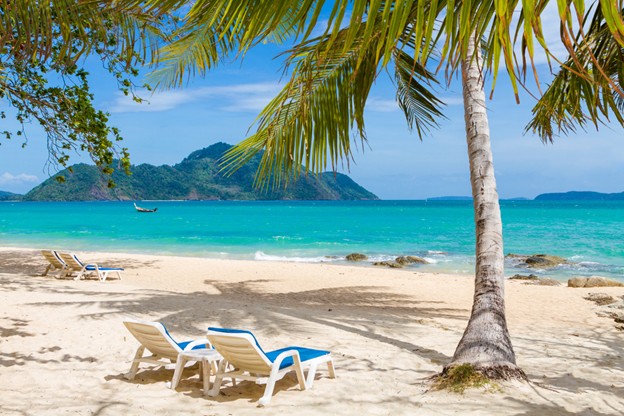


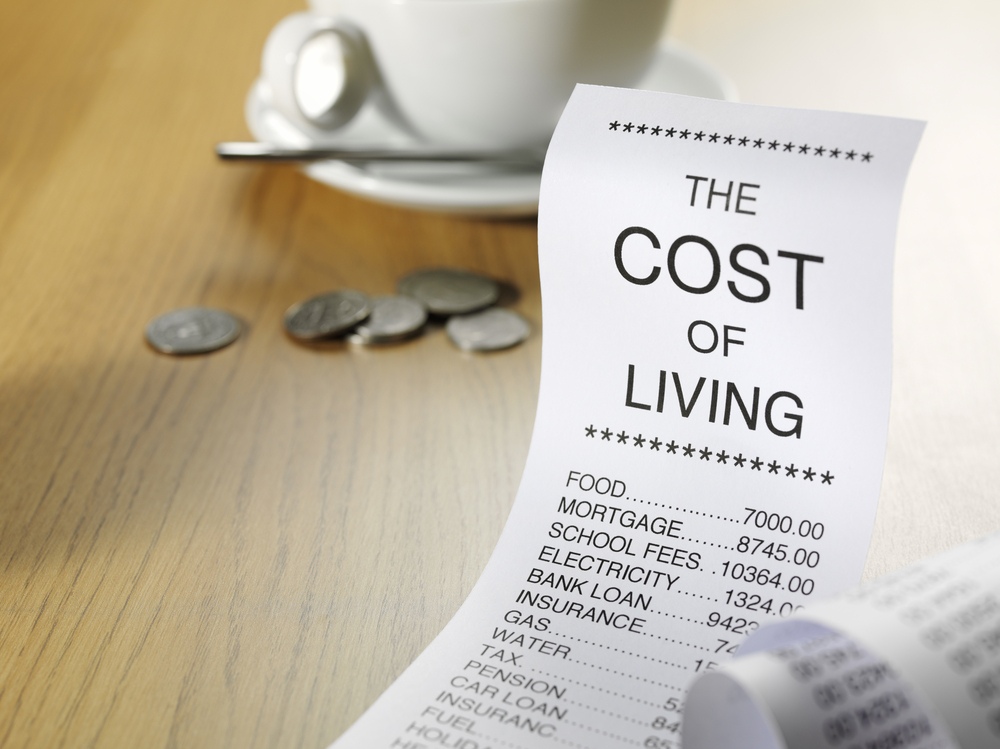


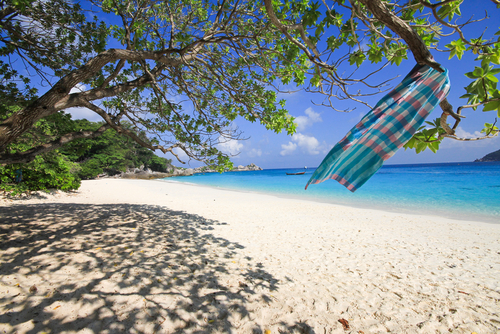

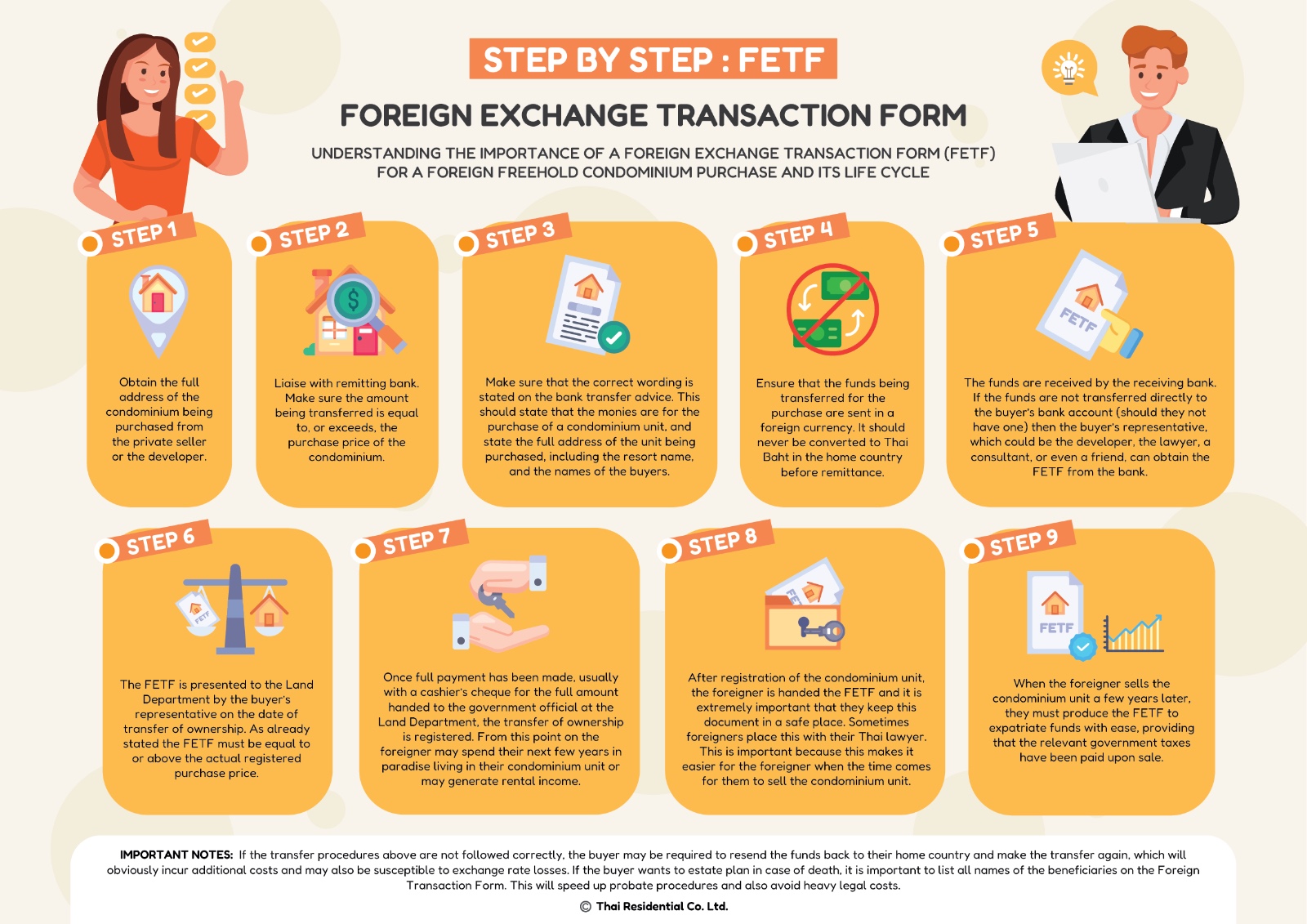
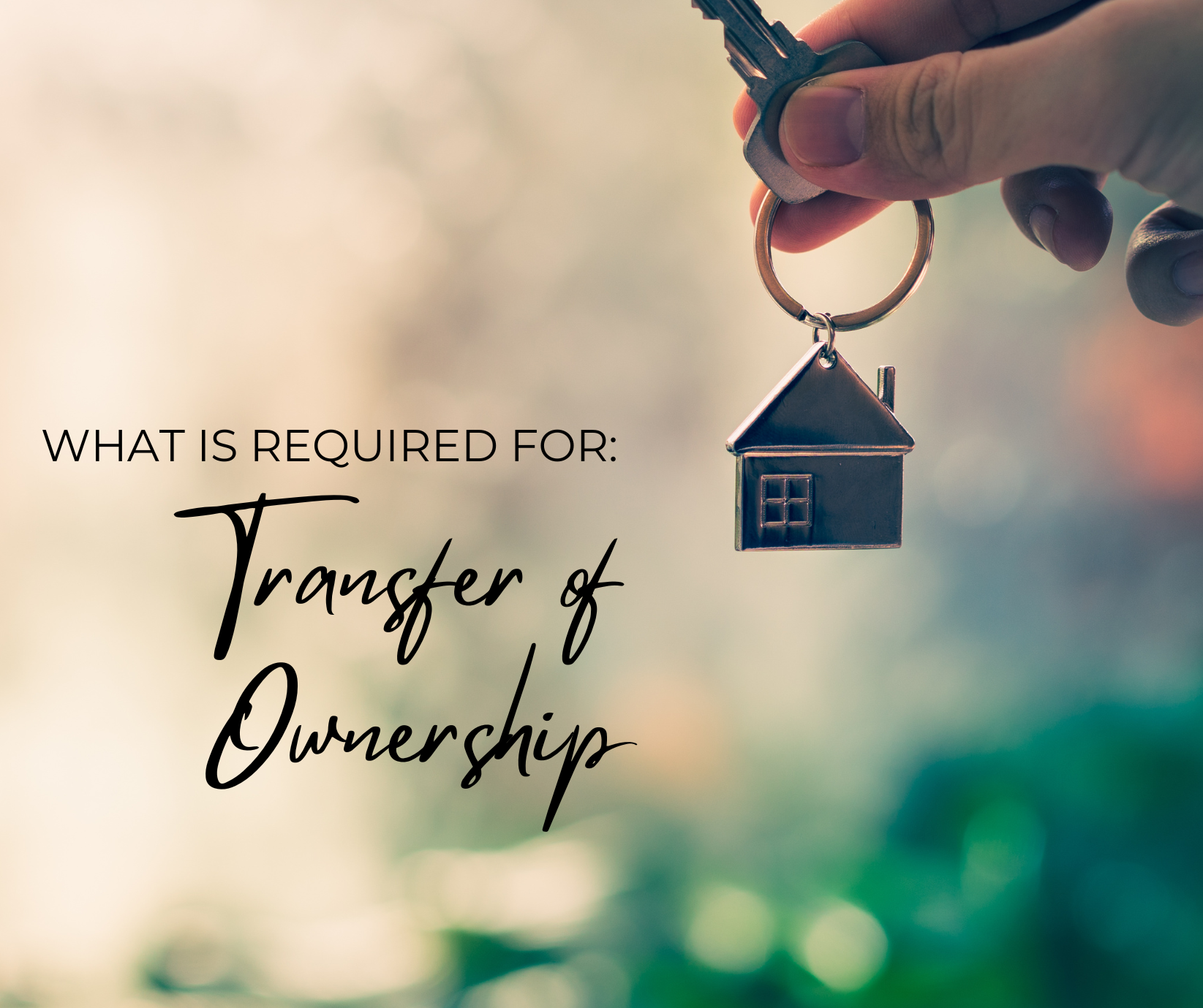
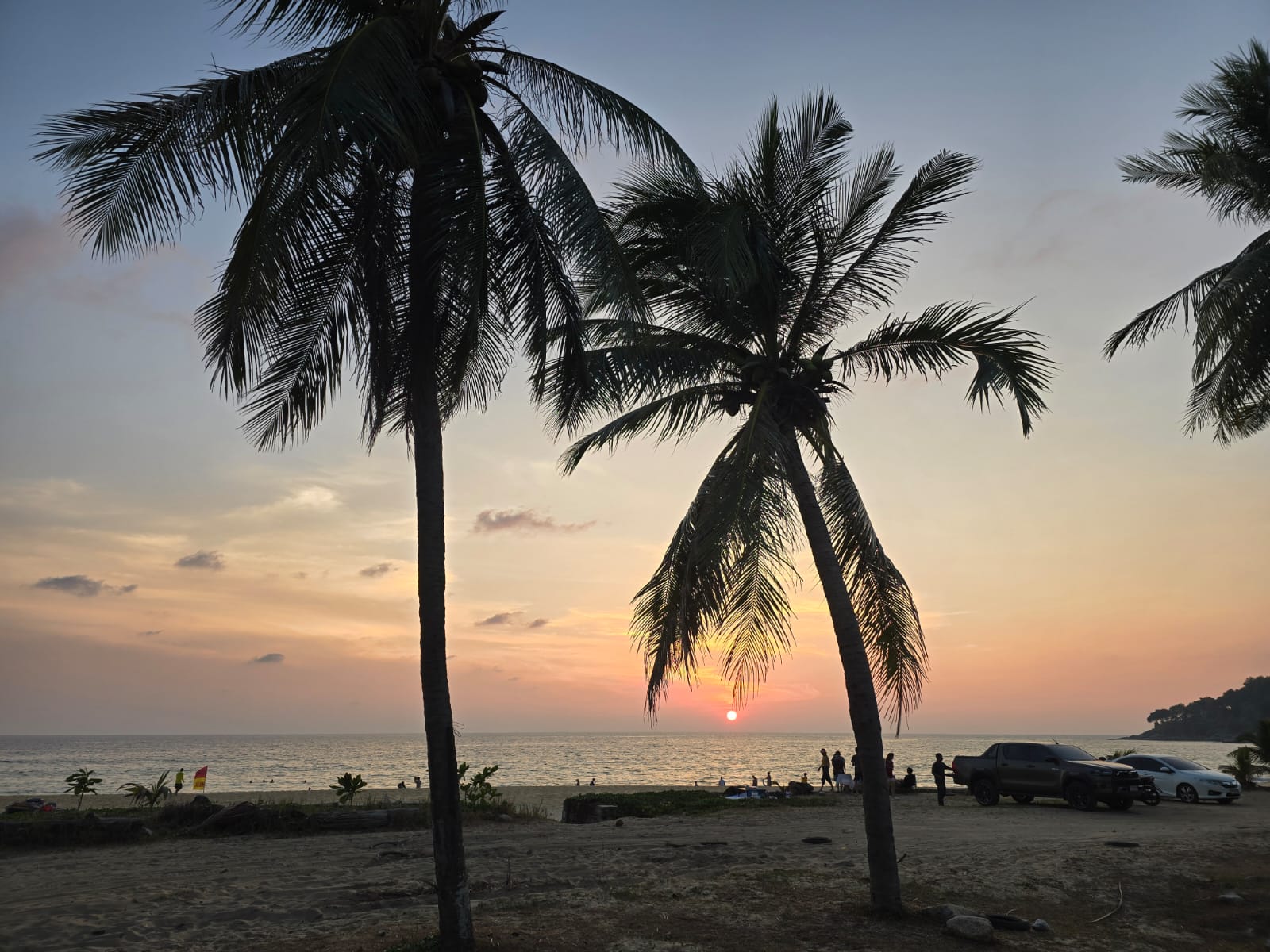


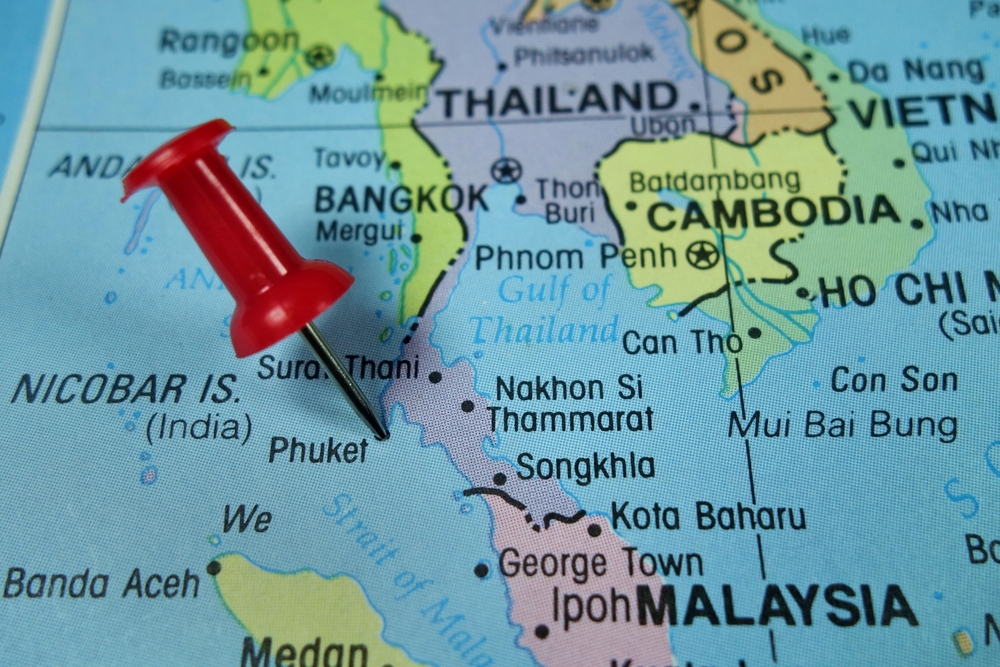
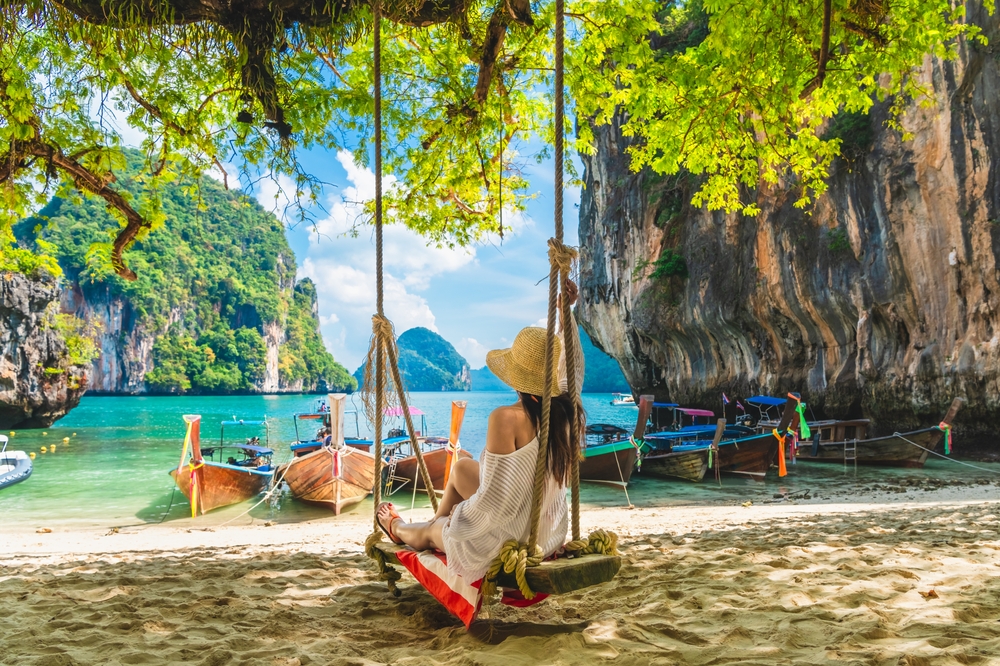








Social Contact